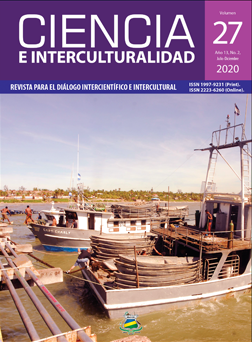Insurgencia de Lenguas e Identidad Indígena en Sistemas Educativos una visión desde un País en Vías de Desarrollo
Resumen
Se presenta los resultados que se obtuvieron al investigar los programas educomunicativos interculturales, en la importancia para la transformación del aprendizaje. Las estrategias de participación y colaboración que aportan al desarrollo individual y social, además de la integración multidisciplinaria. Reconociendo los espacios que ponen en práctica las políticas educomunicativas interculturales. En Ecuador, se dedican programas educativos desde el reconocimiento a sus 14 nacionalidades. Es decir, se espera que las reformas en los métodos educativos sean interculturales; Sin embargo, el kichwa al tener mayor número de hablantes después del lenguaje español, está ausente en las aulas y espacios de desarrollo social.
Representando una problemática para sus hablantes nativos. La limitación para poder acceder a una educación de calidad significa la ausencia de estudiantes en los distintos campos educativos. Por consiguiente, la pérdida del lenguaje kichwa e identidad de sus hablantes. Incrementando la desigualdad y falta de democracia. Los estudios muestran nuevas vías educomunicacionales para incorporar la interculturalidad por medio del ámbito virtual. De esta manera, se incrementa el acceso de estudiantes desde diferentes espacios, capacitando a educadores en la lengua kichwa como en métodos educativos interculturales. Las plataformas utilizan programas que se desarrollen en su lengua materna kichwa.
Descargas
El autor mantiene los derechos morales y permite la cesión gratuita, exclusiva y por plazo indefinido de sus derechos patrimoniales de autoría a la Universidad de las Regiones Autónomas de la Costa Caribe Nicaraguense (URACCAN).






